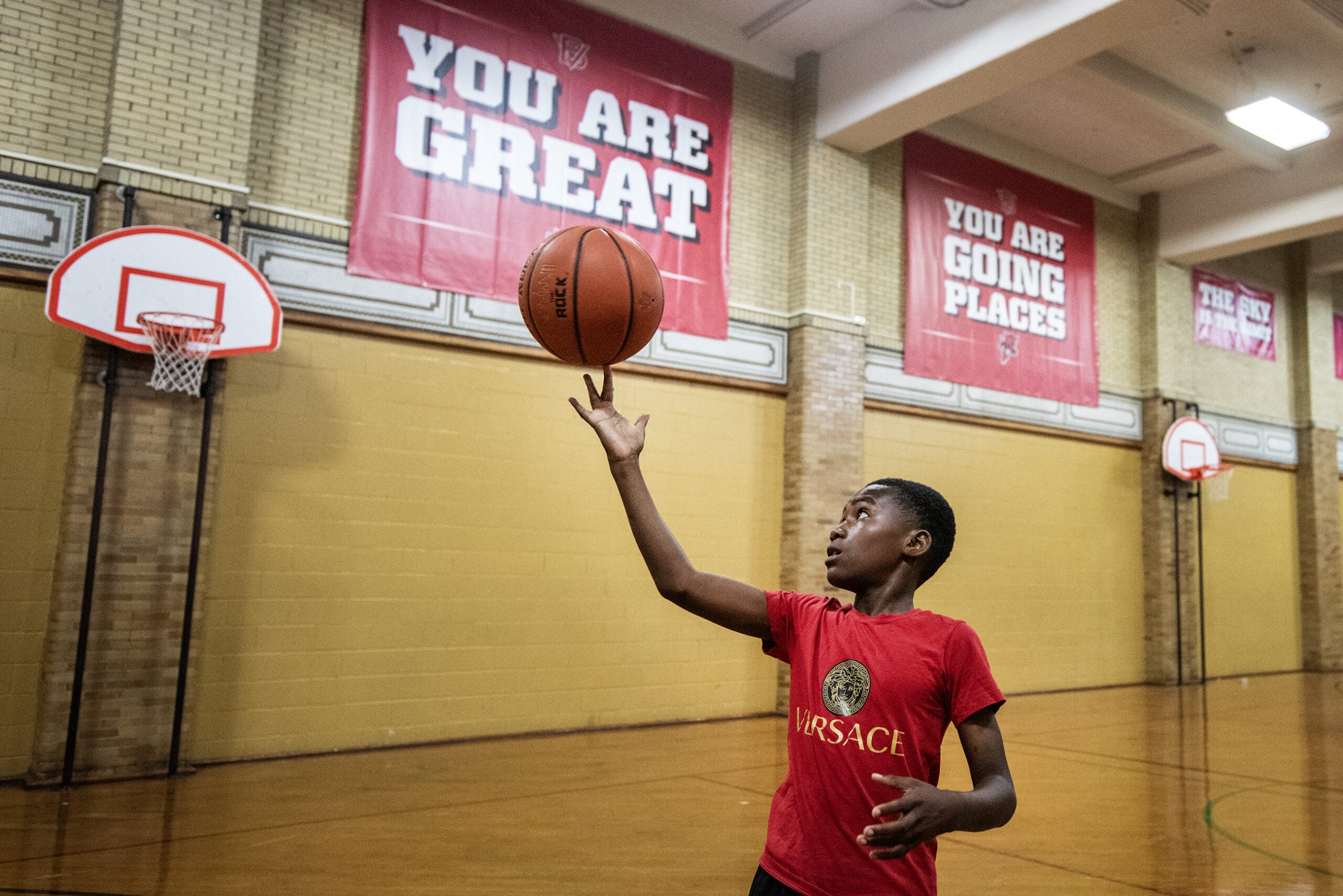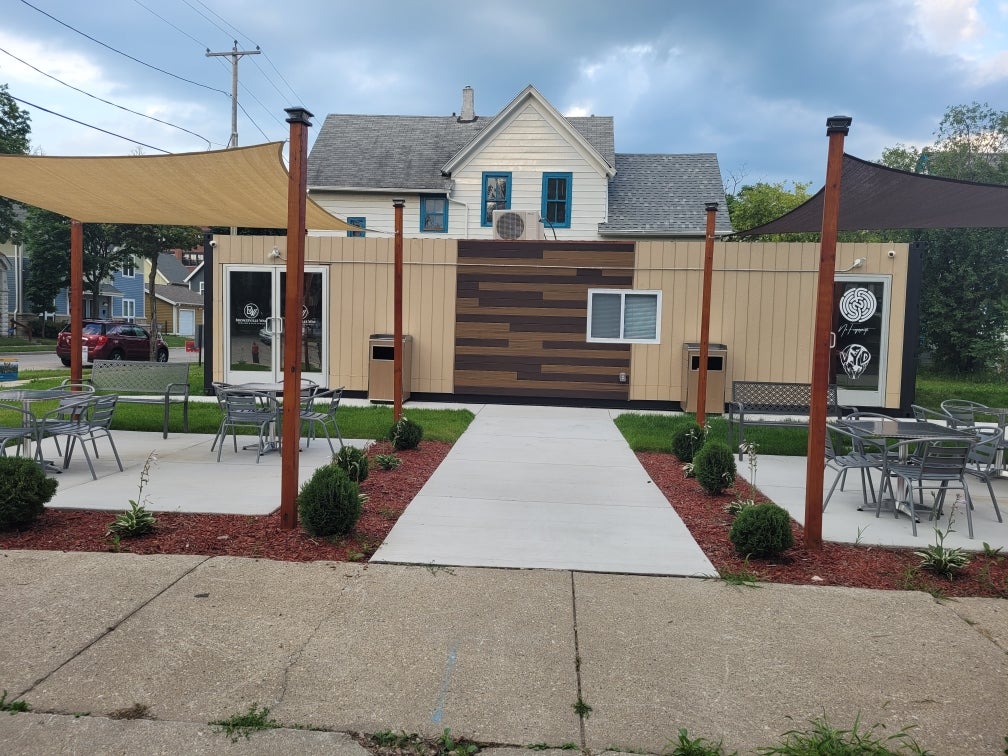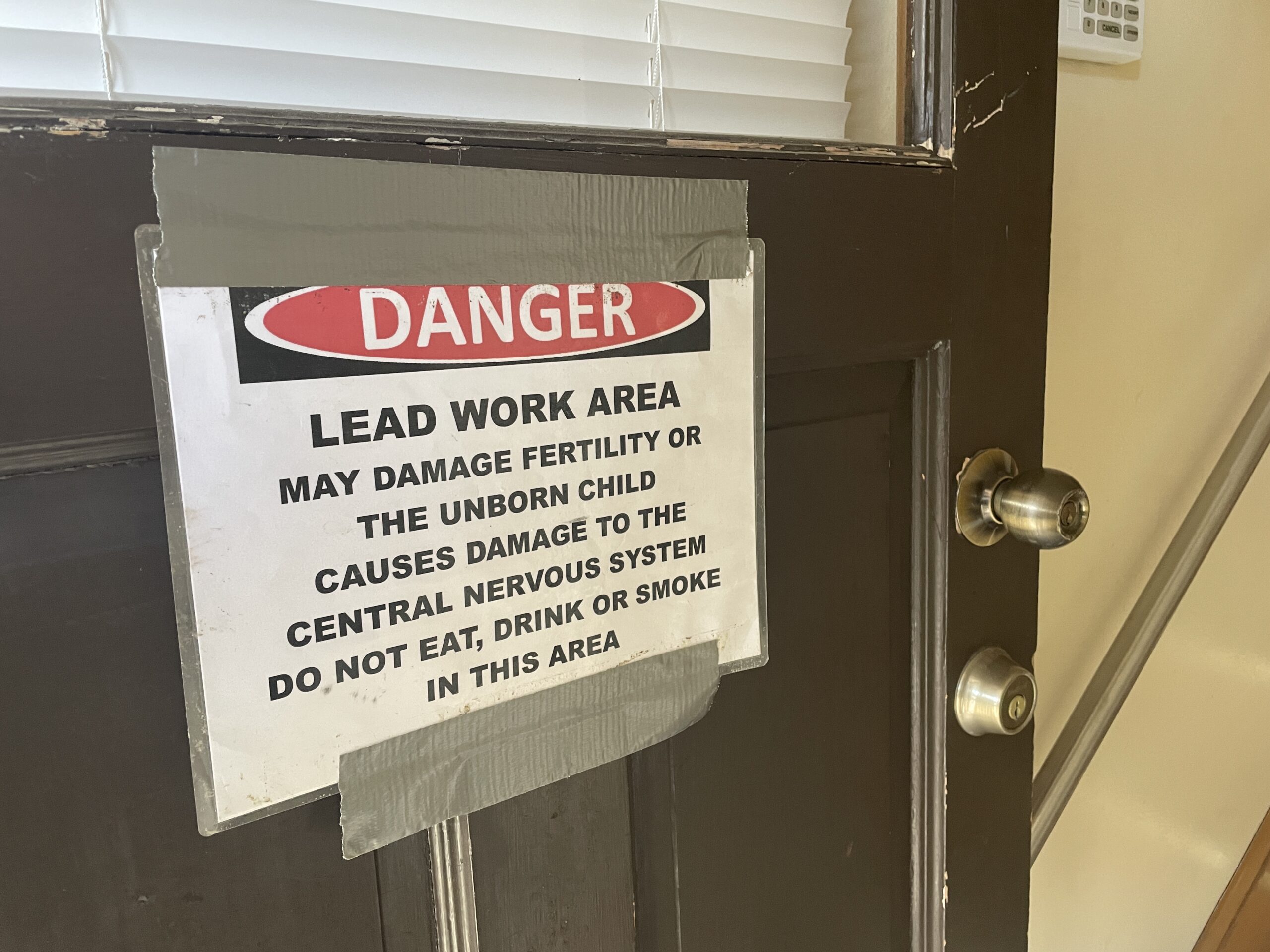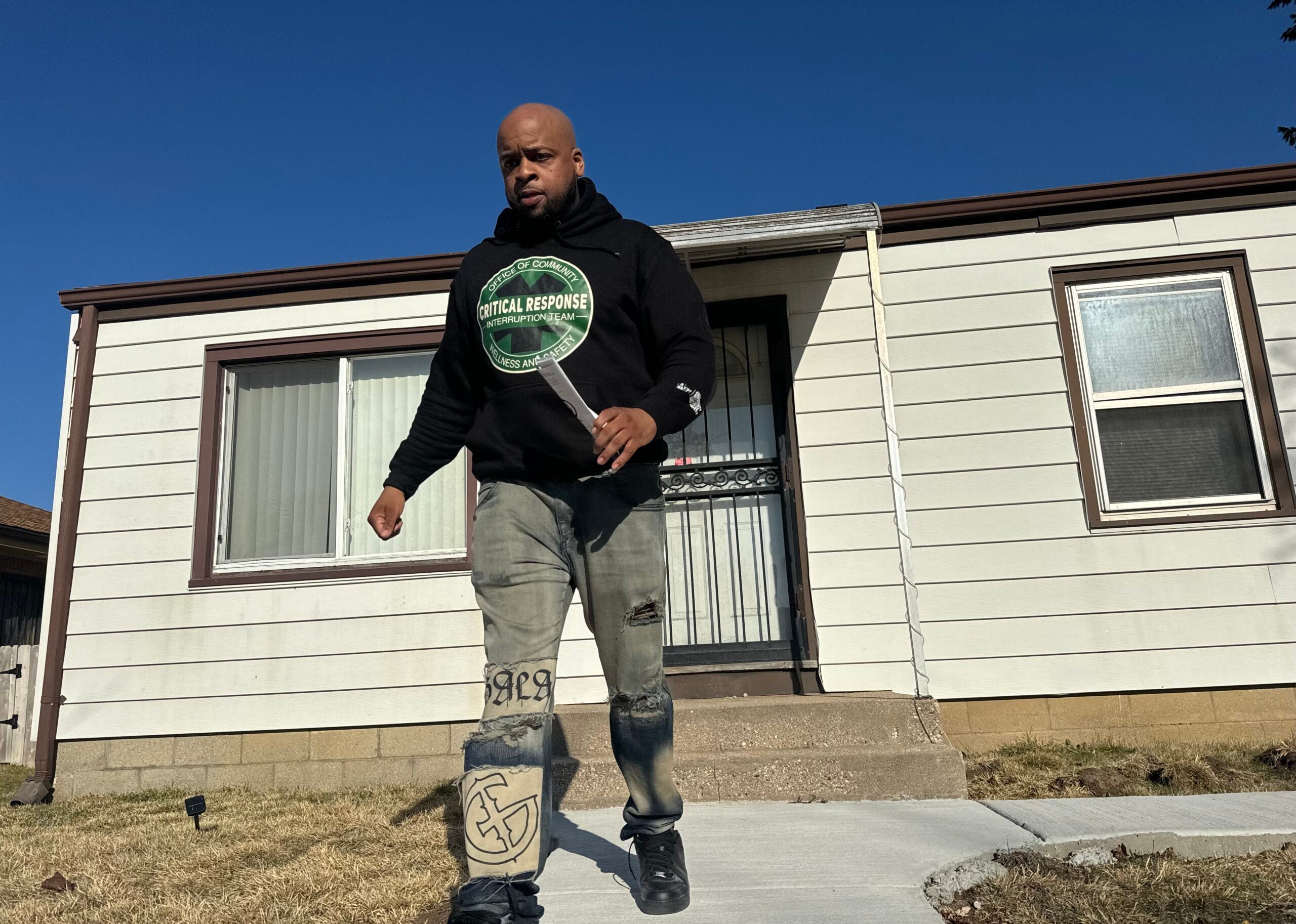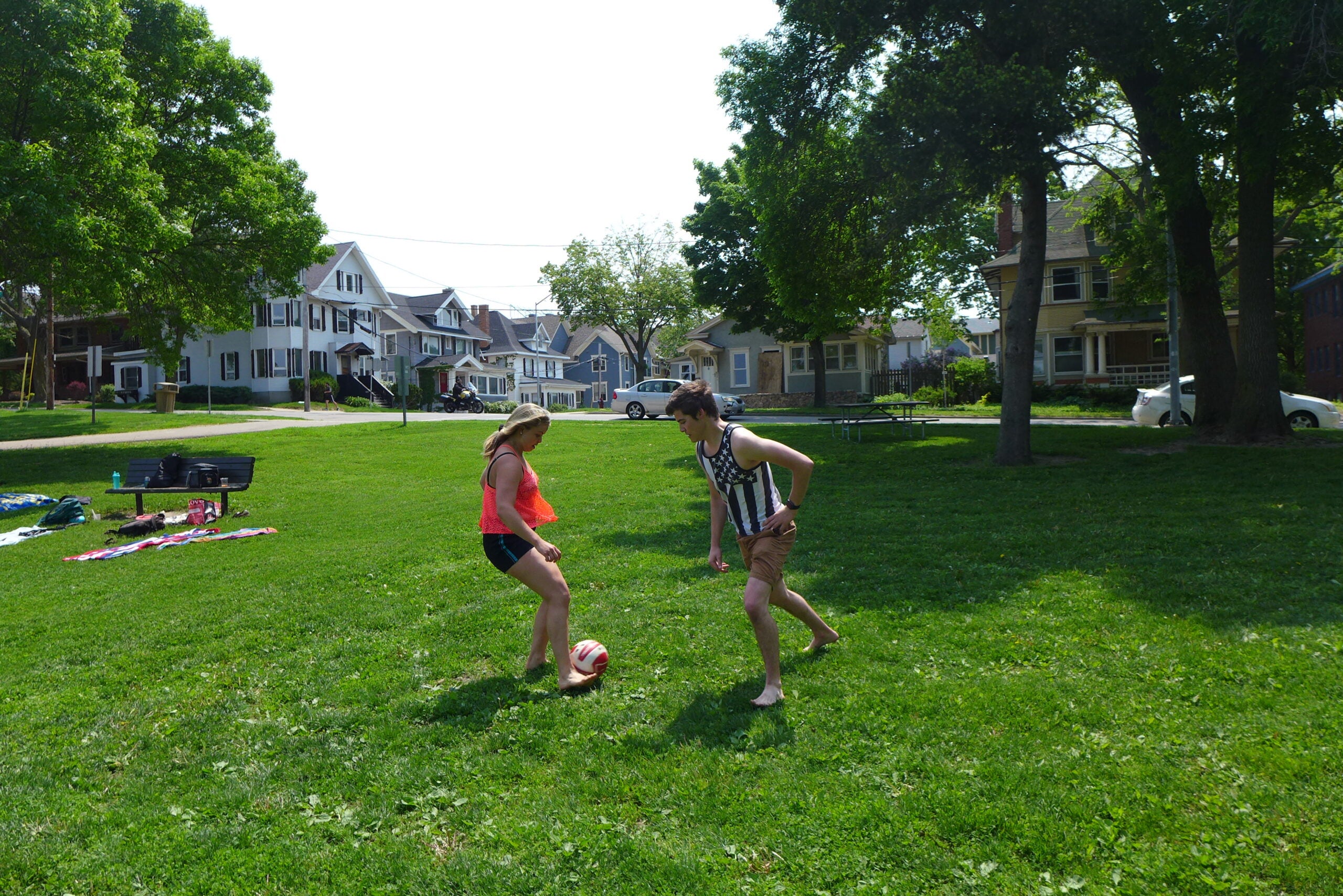It’s Wednesday night in mid-July at North Division High School on Milwaukee’s North Side, and the gymnasium is packed.
More than 60 young people, ages 10 to 18, are on the basketball court, playing a dozen games in preparation for the big tournament later in the week. Elsewhere in the school, kids are playing board games, working on art projects and swimming.
School is out for the summer, but kids show up at North Division every weeknight. This is happening across the city at a half dozen other schools in the Milwaukee Public Schools district.
News with a little more humanity
WPR’s “Wisconsin Today” newsletter keeps you connected to the state you love without feeling overwhelmed. No paywall. No agenda. No corporate filter.
It’s all part of Twilight, a program run by the Milwaukee Recreation Department to keep children off the streets from 5:30 p.m. to 9 p.m. five days a week during the summer and three days a week during the school year.
“This is helping the city, because we need somewhere for these kids to go,” said Jason Blocker, site director at North Division. “These kids know they can come in here for about three hours and have a safe place with no trouble and get something out of it, like this basketball league.”
The longstanding program offers kids positive ways to spend their time during the summer months. For Milwaukee, that feels especially important this year, as city leaders seek to reverse recent trends that saw crimes including homicides, car thefts and reckless driving increase since the beginning of 2020.
Some of the city’s struggles with car theft and reckless driving appear to be driven by juvenile offenders. For some, that makes channeling kids’ time into programs like Twilight feel even more urgent.
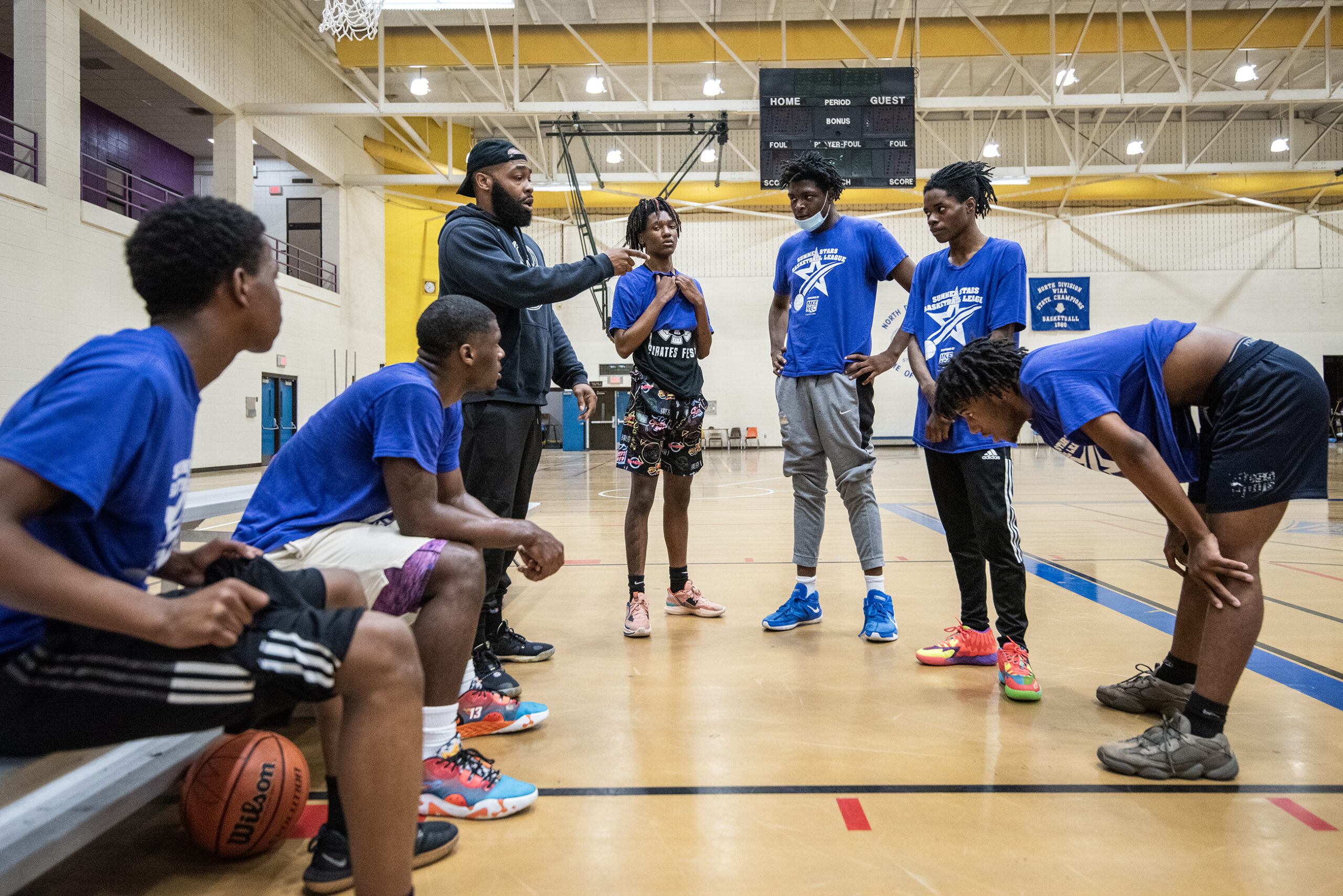
Homicides are down about 30 percent this year in Milwaukee compared to last, but children have had a violent year. As of Aug. 11, 15 minors died by homicide in Milwaukee in 2023. Last year, 27 juveniles were homicide victims, according to police. And the summer months in particular are dangerous. A 2019 study from the University of Southern California found that violent crime increases when the temperature rises in the summer.
Most of the kids in the Twilight program are Black. Blocker, who is also Black, says growing up in Milwaukee, he knows these are the kids most at risk.
“I feel they probably are troubled, or do have issues, but here we don’t see the issues because sports doesn’t discriminate against anyone or see racism,” Blocker said. “It’s not about who you are, what you are. It’s about how you play.”
During the school year, Twilight is held on Monday, Wednesday and Saturday — on the weekends, Blocker said, the streets can get “messy.”
Blocker, who has spent years working with children through the Milwaukee Recreation Department, said for many kids, it’s all about timing.
“If we have these kids in a protected, safe place around the high crime time, that’s where we are being the most effective,” he said. “That 6 p.m. to 9 p.m. time is when the kids are out of school. If you’re not a leader, you are a follower — and you might be following someone who is leading you to no good.”
The youth programming by the city isn’t new. Twenty years ago, the program began under the name Summer Stars. It was originally funded through a city grant. Once the grant concluded, Summer Stars was retooled and Twilight launched in 2017.
Blocker said kids who used to be part of Summer Stars are now back as recreation volunteers or employees with the Twilight program.
Keshon Carter, 23, attended a small charter school but went to the Summer Starts and Twilight programs at Madison University High School (formerly James Madison High School) every day after high school with his cousin.
This summer, he’s working at the North Division program. The experience has him thinking about a career working in Milwaukee Public Schools.
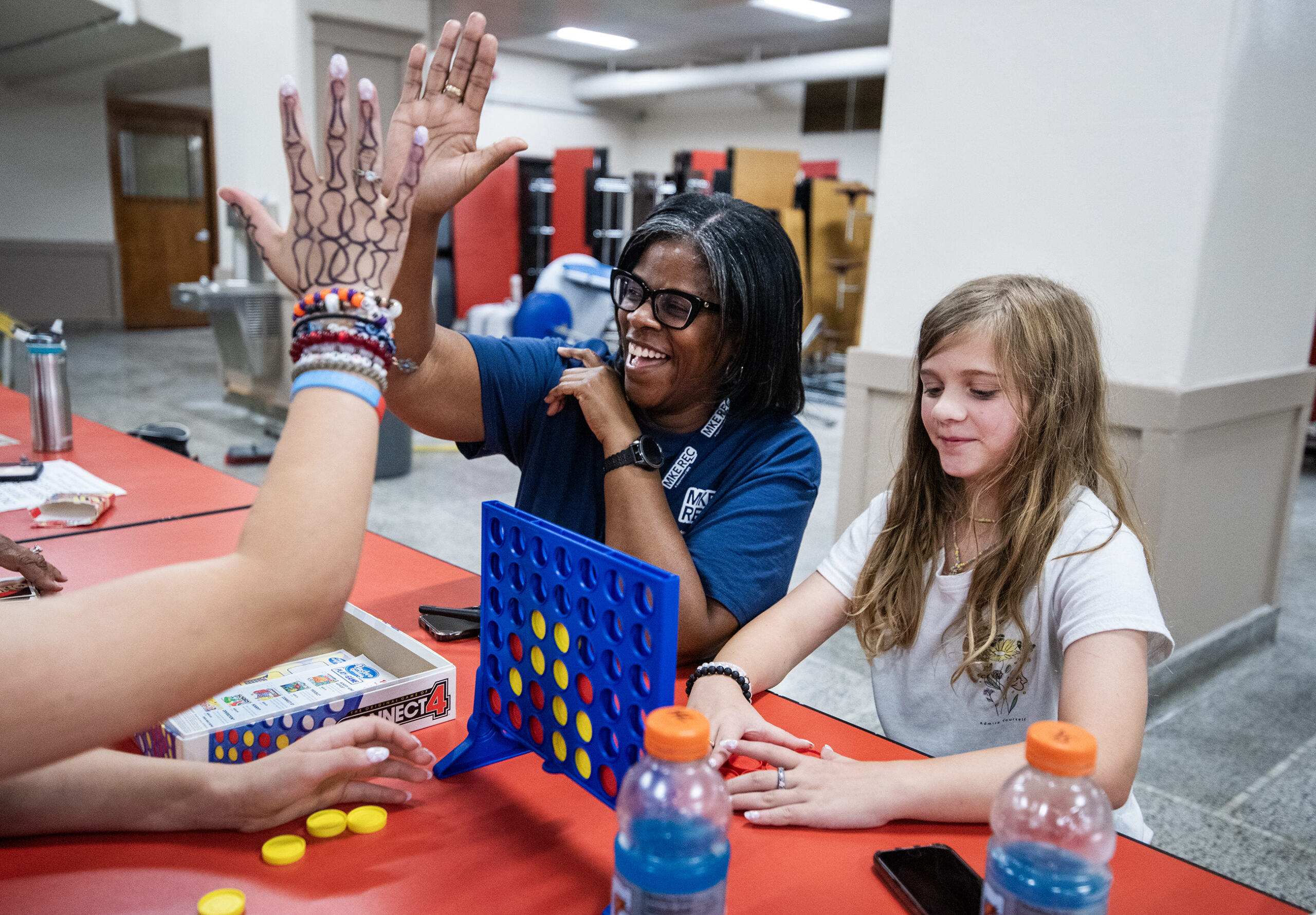
“Since I’ve been here, I’ve just enjoyed every moment interacting with the kids and interacting with the staff,” Carter said. “I’m thinking about being a paraprofessional. I’m trying to see what I can do to have an impact on (the kids’) lives.”
Across town, Bay View High School is the home of the middle school Twilight program for 10- to 14-year-olds.
Isaiah Powell, 10, has spent almost every night this summer at the school.
His favorite activity is swimming, but on this night, Isaiah participated in the daily activity: T-shirt making.
“It was supposed to be a bird, but I messed it up,” Isaiah says, holding up a white T-shirt with a purple drawing on it. “I need to add the wings and finish coloring it.”
The kids also have a chance to do math and reading comprehension worksheets. If they finish them, they get gift certificates for ice cream. And if they complete enough worksheets this summer, there’s a field trip to a Dave & Buster’s restaurant.
“My staff is really good about talking to the kids and giving them the why,” said Donna Moore, building director at Bay View High School, referring to the importance of learning and staying safe during the summer.
They also insist on certain rules of decorum.
“At my site, the kids are not allowed to call us by our first name,” Moore said. “It’s a respect thing.”
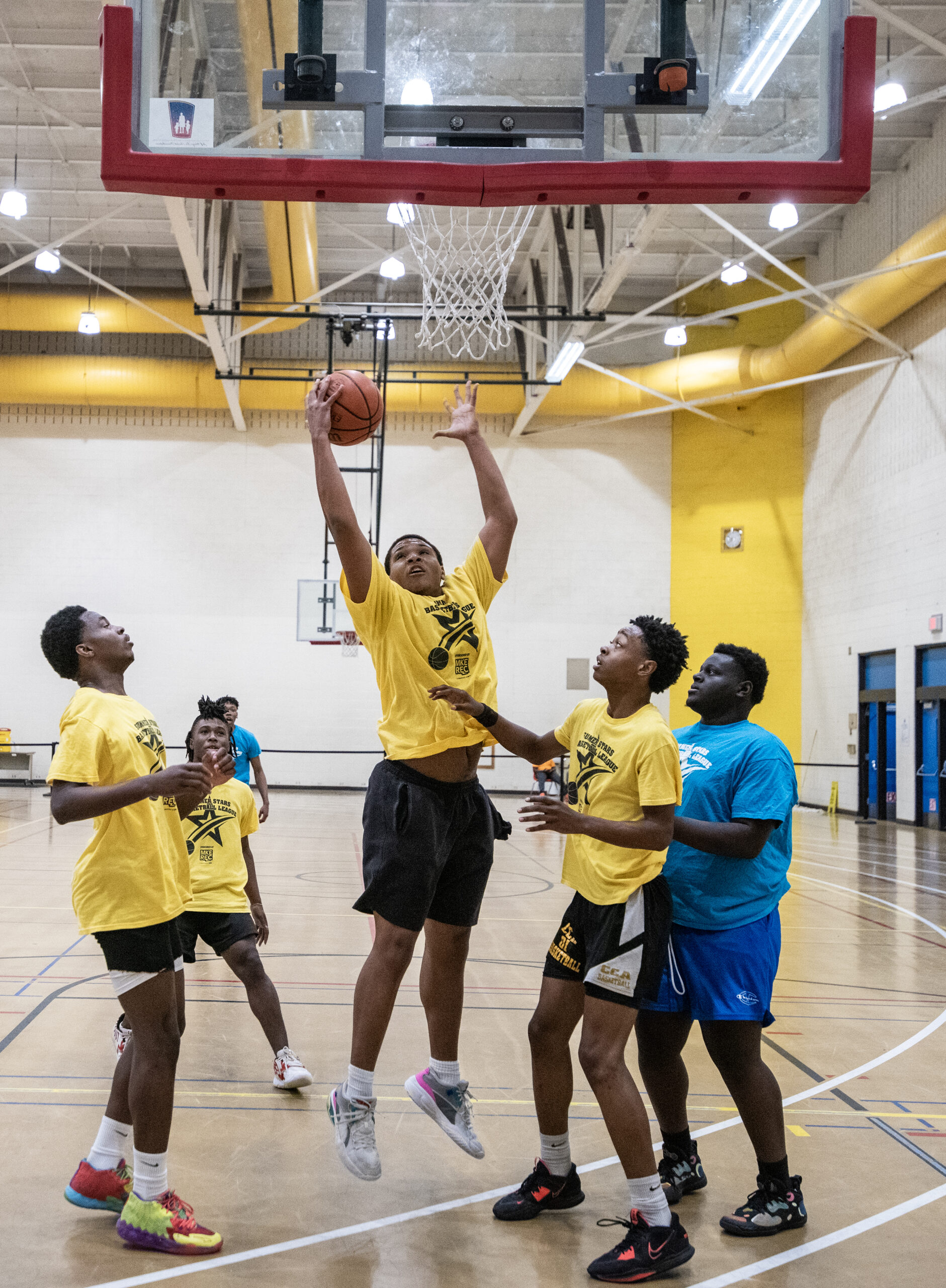
Like the older children at North Division High School, most Twilight attendees are spending this summer evening on the basketball court.
Jamari Moore has some cool moves on the court, including spinning the ball several times on one finger. That move took the 11-year-old about a year to master.
The Twilight program has given Jamari confidence. He says he’s one of the best Twilight players in the basketball league and quite possibly the best football player to ever grace the field.
“I play basketball and I really do love football,” Jamari said. “I won the championship because I had the ball — it was the last-point win. I crossed this other person; I went that way and then I went straight and guess what happened? Touchdown! And guess what? We won.”
The Twilight program continues to grow. Every year more parents realize it’s available at several sites across Milwaukee free of charge, Moore said.
“A lot of these kids walk here or bike here and it really gives them something to do,” she said. “There are a lot of kids that come once and then they say, ‘I want to come here every day.’”
Wisconsin Public Radio, © Copyright 2025, Board of Regents of the University of Wisconsin System and Wisconsin Educational Communications Board.

